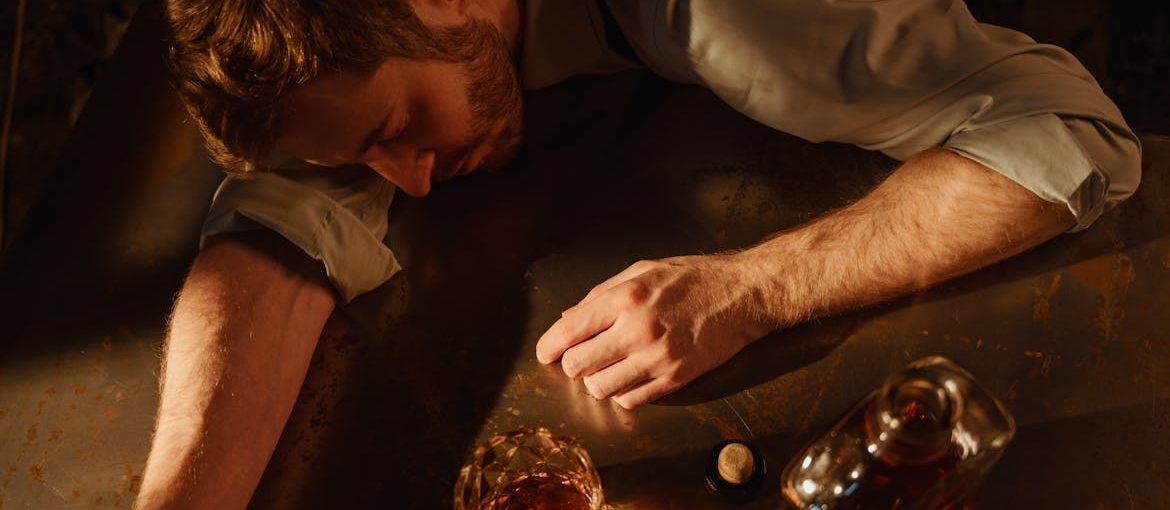Alcohol poisoning is serious and can become life-threatening fast. If you or someone you care about is showing symptoms, don’t wait. This isn’t just a bad hangover—it’s a medical emergency. You might be wondering how long does alcohol poisoning last and what to expect during recovery. The answer depends on several things, including how much was consumed and how fast the person got help. Some symptoms fade in hours, others can linger for days. It’s scary, especially if this is your first time dealing with it. You’re not alone, and there are places that can help. Harmony Ridge Recovery Center WV offers treatment for people who need support after alcohol misuse. If you have questions, this article can help you understand the symptoms, the risks, and what happens next.
What Is Alcohol Poisoning and Why It Happens
Alcohol poisoning happens when someone drinks more than their body can handle. The liver can only break down so much alcohol per hour. When levels rise too fast, vital functions slow down. Breathing can become shallow. Body temperature may drop. It’s dangerous and can lead to brain damage or death. If you’ve ever asked what are the five signs of alcohol poisoning, they include confusion, vomiting, slow breathing, blue skin, and unconsciousness.

Drinking games, binge drinking, or mixing alcohol with other drugs makes it worse. Some people don’t realize how fast alcohol builds up in the body. If this has happened to you or someone close to you, an alcohol rehab center Parkersburg WV residents trust can provide care that goes beyond short-term help. This isn’t about shame. It’s about safety and support.
How Long Does Alcohol Poisoning Last
You may be asking how long does alcohol poisoning last or how long does alcohol poisoning take to wear off. In most cases, symptoms last several hours. But recovery can take much longer depending on your health and the amount you drank. Some feel sick for days. If you’re wondering is it normal to feel sick 3 days after drinking, the answer is yes—it can happen.
Alcohol affects everyone differently. Your liver, hydration levels, and other health factors matter. You might also wonder how long does it take alcohol to leave your system. It depends on weight, age, food, and the type of alcohol. In general, one drink takes about an hour to process. When you drink too much, the body struggles to catch up. Rest, hydration, and medical support help you recover safely.
Short-Term Effects on the Body
Alcohol poisoning affects the body quickly. Some symptoms show up within minutes, while others get worse over time. Here are the most common short-term signs to look for:
- Vomiting and nausea: The body tries to get rid of alcohol fast.
- Shallow breathing: Oxygen levels can drop dangerously low.
- Confusion or blackouts: Memory problems happen as brain function slows.
- Slurred speech: Speech may sound slow or unclear.
- Cold or pale skin: Body temperature drops quickly.
- Seizures: The brain reacts to severe alcohol overload.
- Irregular heartbeat: Alcohol can affect heart rhythm.
- Loss of consciousness: The person may pass out and not respond.

Long-Term Risks After Alcohol Poisoning
The effects of alcohol poisoning don’t always stop when the body clears the alcohol. Some damage can continue or show up later. Below are long-term health issues to be aware of:
- Brain damage: Lack of oxygen during poisoning can cause lasting issues.
- Liver problems: Heavy drinking strains the liver and may lead to disease.
- Heart complications: Long-term effects on heart rate and blood pressure.
- Memory loss: Blackouts can lead to permanent memory problems.
- Mental health issues: Anxiety and depression often follow.
- Stomach damage: Alcohol can irritate and damage the digestive system.
- Dependency risk: One episode can lead to long-term alcohol use disorder.
- Sleep disorders: Trouble sleeping may continue for weeks or months.
Recovery Timeline After Alcohol Poisoning
Recovery doesn’t happen all at once. How long it takes depends on the person, how much they drank, and if they got medical help. Here’s a simple breakdown of what you can expect:
- First 6 hours: Vomiting, confusion, and low breathing need close watching.
- First 12 hours: Most people start feeling slightly better if stable.
- 24 hours later: Weakness, headache, and dehydration may still linger.
- 2 to 3 days: Symptoms like nausea or fatigue may come and go.
- 4 to 5 days: Body may feel normal again, but sleep or mood issues stay.
- 1 week later: You might still feel off. Watch for anxiety or withdrawal signs.
- Aftercare support: Fentanyl rehab programs can help if other substances were involved.
- Long-term monitoring: Look for signs of ongoing liver or brain effects.

When to Seek Medical Attention
It’s hard to tell when alcohol poisoning becomes life-threatening. If you’re unsure, always call for help. People often wait too long. If you’re asking what is the best way to get rid of alcohol poisoning, the truth is—it’s medical care. There’s no quick fix at home. If someone has passed out, breathes slowly, or has bluish skin, call 911. These are all red flags.
Also, dual diagnosis treatment West Virginia programs can help if mental health and addiction are both part of the problem. You don’t have to sort through this alone. Doctors can treat poisoning and guide you through the next steps. Don’t risk waiting. When in doubt, get help. Even if symptoms seem mild now, they can get worse fast. This isn’t just about drinking. It’s about saving a life.
Detox and Treatment Options
Alcohol poisoning doesn’t always end when the symptoms fade. Some people recover quickly. Others need more help. If you’ve been through this, or helped someone who has, you know how scary it can be. Medical support, therapy, and rehab can all play a part in staying safe and healing fully. This part explains your options and how they connect. You’ll also learn how long does alcohol poisoning last depends on what support comes next.
Medical Detox for Alcohol Poisoning Recovery
After alcohol poisoning, your body may still feel weak. Medical detox can help. It gives you a safe place to rest and recover. Doctors track your symptoms, manage pain, and offer fluids and nutrition. This is different from just staying home. If you’ve had other substances in your system, detox becomes even more important. Some programs offer alcohol rehab for professionals who need privacy and flexible scheduling.
If you’re worried about returning to work or family, these centers understand what you need. You’re not just detoxing—you’re rebuilding. The care team can also help you figure out if therapy or rehab should come next. If you’ve been through a dangerous episode, this step can lower the chance of going through it again. How long does alcohol poisoning last can depend on how quickly you get the right help.

Ongoing Support After a Severe Alcohol Episode
Getting past the physical symptoms is just the start. Your body might feel better, but mentally you may still struggle. You might feel guilt, anxiety, or fear. That’s where ongoing support comes in. Counseling, therapy, and support groups can make a big difference. Some people use dialectical behavior therapy for addiction to help with emotional control, stress, and decision-making.
It works well when you have strong feelings that feel hard to manage. You’ll learn skills like mindfulness and healthy coping. Many people find it helpful after a scare like alcohol poisoning. Friends and family may not always understand what you’re going through, but support groups and therapy offer a safe place to talk. How long does alcohol poisoning last isn’t just about the body—it’s also about how long it affects your mind and emotions.
Why Rehab May Be Needed After Alcohol Poisoning
One episode of alcohol poisoning can be enough to see that something’s wrong. Maybe it was the first sign that alcohol is getting in the way. Or maybe it’s been building for a while. Rehab isn’t just for people who hit rock bottom. It’s for anyone who wants to change. If you’re asking about blue cross blue shield drug rehab coverage, many plans now include both inpatient and outpatient programs.
That makes it easier to take this step. Rehab helps you work on what led to the overdose and how to avoid another one. It’s not a punishment—it’s a chance to reset. You’ll meet others who understand what you’re going through. Recovery looks different for everyone. But if you’ve been through alcohol poisoning, it may be time to take rehab seriously.

Preventing Alcohol Poisoning in the Future
It’s hard to go through alcohol poisoning. Once it happens, you don’t want it to happen again. Prevention doesn’t mean never drinking—it means staying safe, staying aware, and asking for help if things feel out of control. This part gives you tools you can use. Each section focuses on real steps that can help you or someone close to you avoid danger. How long does alcohol poisoning last doesn’t have to be your next question.
Safe Drinking Limits and Alcohol Awareness
Most people don’t set out to get alcohol poisoning. It happens when things go too far, too fast. That’s why it helps to know what “too far” looks like. The general advice is no more than one drink a day for women and two for men. But even that can be too much if you’re small, tired, or taking medication.
Eating before drinking, pacing your drinks, and skipping shots can all lower the risk. Watch out for binge drinking—it’s one of the main causes of poisoning. It’s okay to ask yourself if alcohol is worth it. Being aware of what you’re drinking and why can keep you safer. The more you learn now, the less likely you are to find yourself later asking how long does alcohol poisoning last again.
How to Help Someone at Risk for Alcohol Poisoning
If you think someone may have alcohol poisoning, quick action matters. You don’t need to be an expert—just knowing what to do can save a life. These steps can help guide you:
- Stay with them: Never leave a person passed out from drinking alone.
- Call for help: If you’re unsure, call 911—don’t wait.
- Keep them upright: Try to keep them sitting or on their side.
- Share info with EMTs: Tell them how much was consumed and when.
- Watch for blue skin: That’s a sign of very low oxygen.
- Never assume sleep: Unconsciousness can look like sleep but isn’t safe.

Steps to Cut Back or Quit Drinking Safely
You don’t need to wait for a crisis to make a change. If drinking is starting to affect your health, mood, or safety, now’s the right time to think about cutting back. Start with something small. Track how much you drink for a week. Set goals, like skipping alcohol two days a week. Tell someone you trust what you’re trying to do. That makes it real. Use apps or journals to help stay focused.
If cutting back isn’t working, talk to your doctor. There are programs designed for this. You don’t have to go through it alone. Some people quit fully and feel better. Others need more help or medication. Every step counts. Taking action now means you’re less likely to ask how long does alcohol poisoning last again in the future.
Moving Forward After Alcohol Poisoning
Alcohol poisoning can be frightening. If you’ve gone through it or watched someone struggle, you know how serious it is. You might still be asking how long does alcohol poisoning last. The truth is, recovery time depends on many things—like the amount of alcohol, the person’s health, and how quickly they got help. You deserve to feel safe, healthy, and clear. Healing starts with one decision. It’s okay to reach out and ask for help.



